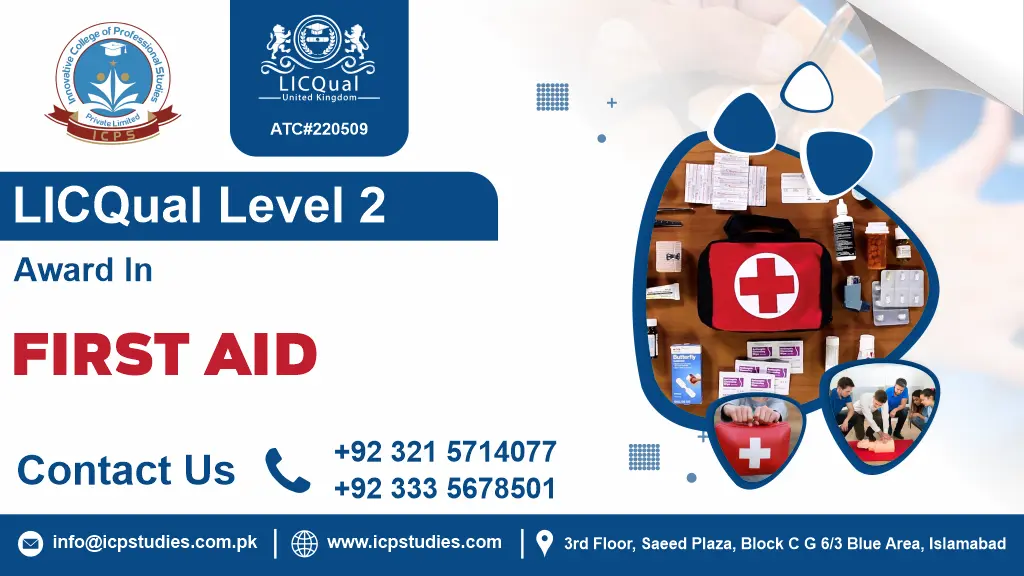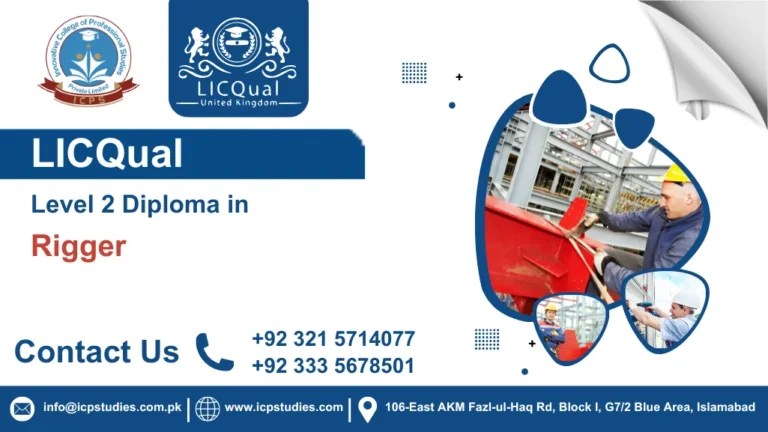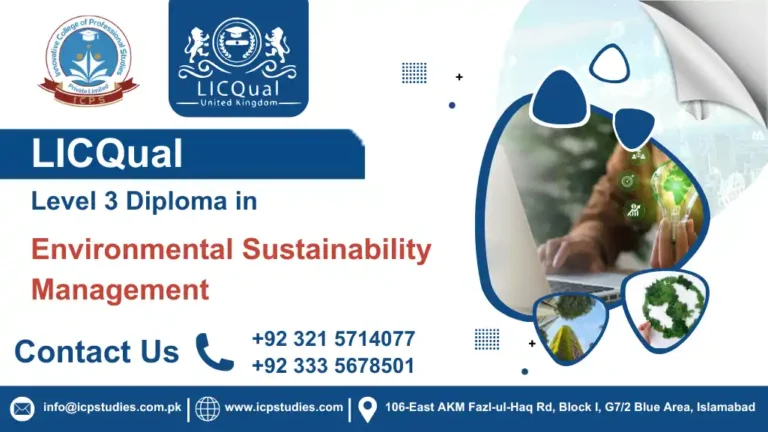Be equipped to handle any emergency situation
Are you in search of an all-inclusive first aid training program that can provide you with the abilities and information needed to confidently manage emergency scenarios? Your search ends here with the Level 2 Award in First Aid!
This course is designed to provide you with a solid foundation in the principles of first aid, covering everything from assessing a casualty to administering CPR and dealing with common injuries such as burns, fractures, and bleeding. You’ll learn from experienced instructors who have real-world expertise in the field, and you’ll get plenty of hands-on practice to help you build your skills and confidence.
The Level 2 Award in First Aid is ideal for anyone who wants to learn how to respond to emergencies at home, in the workplace, or in other settings. Whether you’re a parent, caregiver, teacher, or healthcare professional, this course will give you the tools you need to provide effective first aid when it matters most.
So why wait? Enroll in the Level 2 Award in First Aid today and take the first step towards becoming a confident and competent first aider. With flexible scheduling options, affordable tuition, and expert instruction, this course is the perfect choice for anyone who wants to make a difference in their community and beyond.
All About Level 2 Award in First Aid
Key Takeaways
Course Overview
The Level 2 Award in First Aid presents a comprehensive training program meticulously crafted to empower learners with the requisite knowledge and competencies to administer efficient emergency first aid across diverse environments. Tailored for individuals entrusted with providing first aid in low-risk workplaces such as offices, shops, and libraries, this course encompasses a spectrum of vital skills.
Participants will delve into the foundational principles of first aid, mastering techniques to assess casualties, manage unresponsive individuals, control bleeding, and administer CPR proficiently. Additionally, they will acquire proficiency in providing first aid for various injuries and illnesses, encompassing burns, fractures, choking incidents, and shock.
Characterized by a hands-on approach, the Level 2 Award in First Aid facilitates ample opportunities for learners to refine their skills through simulated scenarios, fostering confidence and enhancing their ability to respond adeptly in real-life emergencies.
Upon successful completion, participants will be bestowed with a nationally recognized Level 2 Award in First Aid, valid for three years. This certification not only empowers individuals to deliver effective first aid in low-risk workplaces but also assures employers of their staff’s adherence to the highest standards of training.
Essential for individuals tasked with first aid responsibilities in low-risk workplaces, the Level 2 Award in First Aid stands as a comprehensive and pragmatic training endeavor, equipping learners with the acumen and proficiency needed to administer emergency first aid effectively. Esteemed by employers across diverse industries, this qualification underscores a commitment to workplace safety and preparedness.
Mandatory Units
The Level 2 Award in First Aid is a comprehensive course that covers essential skills and knowledge required to handle a range of first aid situations. This course provides learners with the ability to provide immediate care to someone who is injured or becomes ill while waiting for professional medical assistance to arrive. The course content is designed to meet the standards set by the Health and Safety Executive (HSE) and the requirements of the First Aid at Work Regulations 1981.
Module 1: Introduction to First Aid
- The principles of first aid
- Roles and responsibilities of a first-aider
- Importance of accurate incident reporting
- The first aid equipment and its uses
Module 2: Assessing the Situation
- Conducting a primary survey of the casualty
- Conducting a secondary survey of the casualty
- Identifying and responding to the casualty’s needs
- Reassuring the casualty and bystanders
Module 3: Resuscitation and AED use
- The importance of early defibrillation
- Basic life support (BLS) techniques
- How to use an automated external defibrillator (AED)
Module 4: Treatment of Bleeding and Wounds
- Types of wounds and their characteristics
- Controlling external bleeding
- Treatment of internal bleeding
- Wound management and care
Module 5: Treatment of Burns, Choking and Anaphylaxis
- Different types of burns and their classifications
- First aid treatment for burns
- Signs and symptoms of choking
- First aid treatment for choking
- Anaphylaxis and its causes
- First aid treatment for anaphylaxis
Module 6: Treatment of Fractures, Dislocations and Head Injuries
- Different types of fractures and dislocations
- First aid treatment for fractures and dislocations
- Signs and symptoms of head injuries
- First aid treatment for head injuries
Module 7: Medical Conditions and Emergencies
- Recognizing and responding to medical emergencies
- First aid treatment for seizures
- First aid treatment for asthma attacks
- First aid treatment for heart attacks and strokes
- First aid treatment for diabetic emergencies
Module 8: Recording and Reporting of Incidents
- The importance of incident reporting
- What to include in an incident report
- Confidentiality and data protection issues
Assessment: At the end of the course, learners will be assessed through a practical assessment and a multiple-choice question paper. The practical assessment will be based on simulated first aid scenarios, and learners will have to demonstrate their skills and knowledge in dealing with a range of first aid situations. The multiple-choice question paper will test the learners’ theoretical knowledge.
The Level 2 Award in First Aid course is an essential qualification for anyone who wants to learn first aid skills. This course provides learners with the necessary knowledge and skills to deal with a range of first aid situations confidently. Successful completion of the course will enable learners to become competent first aiders and will provide them with the necessary qualification to meet the requirements of the First Aid at Work Regulations 1981.
The entry requirements for the Level 2 Award in First Aid typically include:
- Age Requirement:
- Candidates should generally be at least 16 years old.
- Academic Qualifications:
- There are typically no formal academic qualifications required, making the course accessible to a wide range of individuals.
- Language Proficiency:
- Proficiency in English, both written and spoken, is usually required. Non-native speakers may need to provide evidence of their language skills (e.g., an IELTS score of 5.5 or equivalent).
- Motivation Statement:
- A brief statement outlining the applicant’s interest in first aid and how the course will contribute to their personal or professional development may be encouraged but is not usually mandatory.
- Professional Experience:
- While not mandatory, some experience in a caring or supervisory role may be beneficial.
For the most accurate and specific information, it is advisable to consult the specific awarding body or institution offering the qualification.
Learning Outcomes
The Level 2 Award in First Aid is a comprehensive course designed to equip learners with the essential skills and knowledge needed to provide first aid in emergency situations. This course covers a wide range of topics, including basic life support, dealing with bleeding, burns, and shock, and how to manage an unresponsive casualty.
Upon completion of this course, learners will be able to assess the situation quickly and effectively, provide essential first aid treatment, and take appropriate action to ensure the safety of the casualty. They will also gain the confidence and skills needed to administer first aid in a range of settings, including workplaces, schools, and public areas.
The learning outcomes of this course include:
- Understanding the role of the first aider and the importance of carrying out first aid in a safe and effective manner.
- Understanding the legal requirements for providing first aid and the importance of record keeping.
- Being able to assess an emergency situation and act appropriately to ensure the safety of the casualty and others.
- Being able to perform basic life support techniques, including cardiopulmonary resuscitation (CPR) and the use of an automated external defibrillator (AED).
- Knowing how to manage a casualty who is choking, bleeding, suffering from shock, or experiencing burns or scalds.
- Being able to provide first aid to a casualty with injuries to bones, muscles, and joints.
- Understanding how to manage an unresponsive casualty, including the recovery position and cardiopulmonary resuscitation (CPR).
- Knowing how to provide first aid to a casualty with anaphylaxis, asthma, diabetes, and seizures.
Overall, the Level 2 Award in First Aid course provides learners with the essential skills and knowledge needed to provide effective first aid in a range of emergency situations. This course is ideal for anyone who wishes to become a qualified first aider, including individuals working in high-risk environments or those who simply want to improve their first aid skills.
The Level 2 Award in First Aid is designed to provide learners with essential life-saving skills and practical knowledge to respond effectively in emergency situations. This course is ideal for a wide range of individuals, including employees, managers, volunteers, parents, students, and the general public.
1. Workplace Employees
Employees across industries who have health and safety responsibilities will benefit from this course. Learners will:
- Understand essential first aid principles and techniques.
- Learn how to respond to injuries, accidents, and medical emergencies at work.
- Develop skills in CPR, bleeding control, and treating shock.
- Recognize and respond to common workplace hazards.
- Support a safer workplace environment for themselves and colleagues.
- Gain confidence to act quickly in emergencies.
- Comply with workplace health and safety requirements.
- Reduce the impact of accidents and injuries through timely intervention.
2. Managers and Supervisors
For managers and supervisors responsible for staff safety, the course helps them to:
- Ensure workplace safety compliance with first aid regulations.
- Lead and coordinate emergency responses within the team.
- Support employees during medical emergencies.
- Conduct workplace risk assessments with first aid considerations.
- Develop and maintain first aid policies and procedures.
- Train or guide employees on emergency preparedness.
- Reduce organizational liability in case of accidents.
- Promote a culture of safety and well-being within the workplace.
3. Volunteers
Individuals engaged in community service, sports coaching, or charitable activities will gain the ability to:
- Respond confidently to emergencies in public or volunteer settings.
- Provide first aid support during events, activities, or gatherings.
- Recognize injuries and health emergencies in children and adults.
- Learn CPR and life-saving interventions for critical situations.
- Improve safety measures for participants and community members.
- Support organizations in complying with health and safety standards.
- Build skills that increase trust and responsibility in volunteer roles.
- Act effectively under pressure in emergency situations.
4. Parents and Caregivers
Parents, guardians, and caregivers can use this course to protect their families and dependents by:
- Learning essential first aid skills for home and childcare situations.
- Responding to injuries, choking, burns, and falls effectively.
- Administering CPR and basic life support in emergencies.
- Understanding how to prevent accidents at home or outdoors.
- Developing confidence to act calmly during emergencies.
- Supporting children, elderly family members, or dependents in need.
- Promoting a safer household environment.
- Preparing for unexpected medical situations with practical knowledge.
5. Students
Students pursuing careers in healthcare, education, childcare, or social work will benefit by:
- Enhancing their practical skills in first aid and emergency response.
- Learning life-saving techniques applicable in professional settings.
- Improving employability and career readiness.
- Understanding how to handle emergencies involving children, adults, or vulnerable individuals.
- Gaining foundational knowledge for advanced healthcare or safety training.
- Developing confidence in both academic and workplace scenarios.
- Preparing for real-world situations where first aid knowledge is required.
- Supporting colleagues, classmates, and community members during emergencies.
6. General Public
Anyone interested in learning basic first aid skills can benefit by:
- Understanding how to respond to medical emergencies safely.
- Learning CPR, choking management, and wound care techniques.
- Enhancing personal and community safety.
- Building confidence to act in emergency situations.
- Promoting awareness of first aid in family, friends, and community.
- Reducing risk of serious injury or fatality in accidents.
- Gaining practical skills applicable in everyday life.
- Contributing to a safer and more prepared community.
The Level 2 Award in First Aid equips learners with practical knowledge and confidence to act effectively in emergencies, making it essential for employees, managers, volunteers, parents, students, and anyone interested in personal or community safety.
FAQs Related to Level 2 Award in First Aid







